Pittsburgh – December 2022 Key Take-Aways
Todd Pifer, AdVenture Development: One of the things I’m working on in the Pittsburgh market is great news: Last Friday, we awarded Burns Scalo a project at McCandless Square, to build a food hall. I can say that 100 percent the reason we awarded them this project was this meeting — Gene and I have struck up a friendship. We’re pretty darn excited. Condado Taco has been in the news; they started construction at McCandless Crossing this morning and will open at the end of February or early March. We’re also getting a specialty cookie shop in McCandless Crossing. The gun range is done and open.
Kelly McGovern, Frost Brown Todd: I’m a senior associate in real estate. We’re excited to be hosting this. Along with my colleague, Jason, in finance and real estate, we’re excited to have you guys here. The firm is in 14 cities, in 8 states and is a full-service law firm, with a sizable finance and commercial real estate practice group.
Jason Ott, Frost Brown Todd: Our firm does a lot in private equity and we’re fortunate to do a lot in real estate, as well. We’re happy to have everybody here, able to talk and connect, and to do what we can to be a resource for everybody. We have a footprint that goes across the Midwest and now in California. We work on deals across the country, so we have a deep bench. We have closing companies in each state where we have offices.
Lisa Kelly, First National Bank: I’m on the investment real estate team, 15 years now. I now focus on community development and affordable housing, economic development in disadvantaged communities. We try to do incubator space for start-up businesses as well.
Tony Rossi, CBRE: I’m in equity finance; our group is focused on mortgage brokerage, equity rating for clients, owners, buyers, developers. We do commercial real estate, office, industrial, retail, hospitality and some agencies.
Perry Ninness, UBS: We have about $500 million in assets; we deal in capital markets.
Jennefer Bartholomew, UBS: I’m mainly a financial adviser in 401(k) for corporations, and do business discussion and planning.
Ray Steeb, eFacility: We store, save and distribute information, mostly for maintenance.
Chip Desmone, Desmone Architects: We have offices in Pittsburgh, Morgantown and Cleveland. We’re doing a lot of tech-flex stuff and, like most architects, lots of apartments. We’re doing some office projects, as well — we have about 300,000 square feet in offices, nine projects, right now. We have a half-dozen restaurants, too. There’s still a lot of activity out there. Interest rates are upsetting people, but we haven’t had anybody cancel a project yet, which is a good sign. I became a member of this group because I didn’t want anybody else to get in front of me.
Angela Gillot, Burns Scalo Real Estate: I work with Gene on business development; he’s in a different aspect of business development. We’re always looking to bring in new business, whether it’s through acquisition, joint venture, listing, clients. I also work on the brokerage side with third-party leasing. And I oversee a small program with Facilities to provide buildout and services to existing clients. We probably have signed as many leases this year as we have in the past two years during Covid; we’ve seen some consolidation of offices and downsizing, but continue to see a steady stream of leasing.
David Serbin, Fourth Street Group: I have a history in community development and now I’m in the for-profit side. I work with minority developers, on mixed-use. We have a new construction component as well, for-sale housing.
Greg Boyd, NexTier Bank: We’re a commercial real estate lender. Interest rates have put the brakes on a lot of activity I’m working on this year. It was an OK year, but it was hard. Hopefully next year will be a lot better. I’m looking forward to financing projects, or even to seeing a refinance again soon.
Jim Futrell, Allegheny Conference on Community Development: I’m vice president of market research. Through the third quarter, we’ve seen lots of activity with distribution centers – more announcements in 2022 so far than in all of 2021, so that’s still strong. Manufacturing is still above pre-pandemic levels; business and financial services are still slightly below. We’re seeing a rebound in announcements for branch operations and headquarters expansions. That will pick up as people begin to come back to offices. We’re still about 40,000 employees below pre-pandemic levels. There’s primarily a shift in leisure and hospitality: It came roaring back and is at 97 percent of pre-pandemic levels, outpacing the U.S. We’re seeing shortfalls now in health care — about a third of that 40,000 is in hospitals and ambulatory health care, which are pressed by shortages in labor and population growth. About 20 percent of the shortfall is in education services and we’re trying to get a handle on that. Post-secondary enrollment has been declining for a number of years, and a lot of education providers readjusted staffing during the pandemic. [The numbers cover a metro area of seven counties.]
Bill Gatti, Trek Development Group: I’m president and founder of Trek Development. We own, operate and manage housing, primarily in the Pittsburgh area and a 100-mile radius around the city. Many of you I know. We’re doing the Garden Theater block on the North Side; it’s been a journey. We’re on Penn in the Cultural District. And housing is doing surprisingly well Downtown. Retail has been hit and miss, for sure. We have a couple of buildings we’re trying to fill, at 9th and Penn. We also have Bedford Choice in the Hill District, on Bedford Avenue, which could be 850 new residences. We recently lined up financing.
Cate Irvin, Pittsburgh Downtown Partnership: We represent the Golden Triangle and surrounding neighborhoods. And we do events — LightUp Night is a big one, and we have the Holiday Market in Market Square. My role is tracking data and monitoring development: What is Downtown activity, daily, monthly and annually? We had 87,000 people, on average, each day in November. We’re starting to see it level out in December. We’ve been trying to see what patterns are and where we’re headed. We want to see what we can do with office space Downtown as we move into the next phase of Downtown. One thing we’ve noticed: patterns have changed. It used to be busy Mondays through Fridays but now it’s quieter. Office employees are at about 53 percent, compared to 2019, in November. Swipe data of about 10 buildings is at about 20 percent. We track by cell phones, too. Employees are people who are Downtown for a minimum of four days, so if you have hybrid workers, it won’t count even though we know they’re employees. That’s why we monitor all visitors. And it depends how you classify employees. With hotels, what used to be business and convention travel, we’re seeing more weekend leisure and destination — the hotels are filling, but on different days. Our forecast is that we believe we’ll see around 70 percent recovery. Events are doing well, the Cultural District is at about a 70 percent return.
Don Johnston, Grossman Yanak Ford: Our firm has been a member for a long time. I love getting intel. I’m a CPA. We have 85 people at our headquarters here and would have 100, if we could. It’s hard to find and retain talent. We’re able to find people but it costs us a lot. I’m a tax partner — I do nothing but tax work, and that’s not as bad as it sounds. We’ve grown over the last three years because of the pandemic, with PPPs and ERCs, clients buying and selling. The accounting industry is very busy. Real estate clients continue to expand. I do everything on the tax side. Business clients are smoking hot. If there’s a slowdown, my clients aren’t seeing it. Manufacturers were crazy busy during the pandemic. Some clients are passing projects on to us — if they can’t do it, they’ll pay the extra price to have us do it. We’ll hire talent whether we need it or not, because we know we will be needing it. Our company is operating hybrid — one or two days a week in the office. We’re flexible on that because employees know they can find a job that’s remote. Young people want to come in; partners and managers are coming in one day a week. There’s a concern about safety Downtown — it’s not the same as it was three years ago.

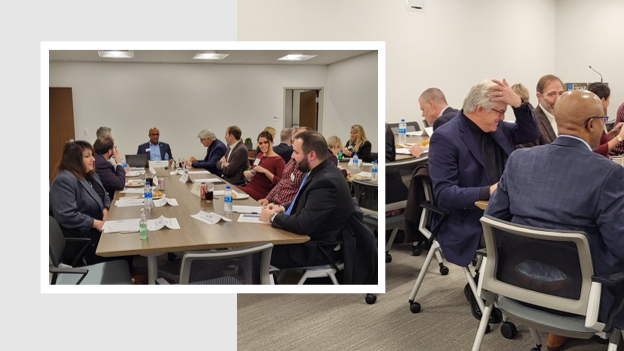
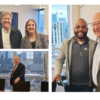
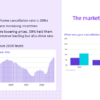
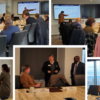
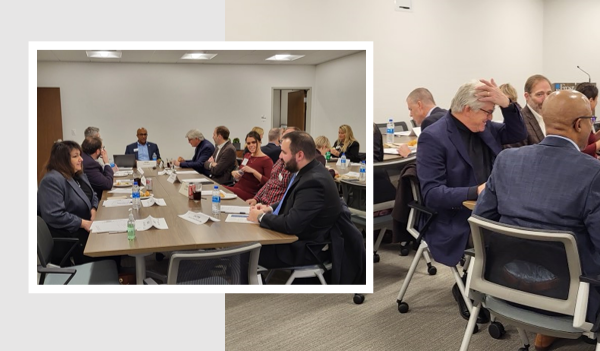
Recent Comments